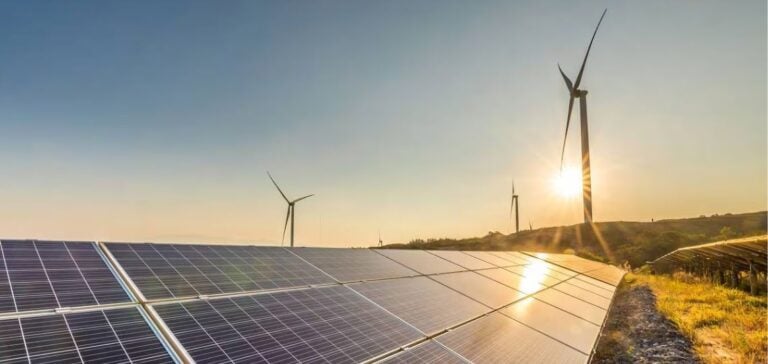Thanks to BayWa r.e., Spain is embarking on a new project combining wind and solar technologies in the country. BayWa r.e. is no stranger to promoting alternative energy consumption. In 2021, BayWa r.e is opening two solar projects in France to crowdfunding. The following year, BayWa r.e joined forces with Power Center. In this way, the project carried out in Spain fits in well with the more general framework of energy transition, and could serve as a model for renewable energy in the rest of Europe.
Energy Advance in Spain
BayWa r.e., together with its local partner CEAR, will implement this new project at three different sites in northern Spain. These facilities, located in the municipalities of Épila, Lumpiaque and Rueda de Jalón, near Zaragoza, will represent a major step forward in renewable energy production in Spain, as well as an example of technological innovation in the field.
The project will comprise three wind farms, each with eight Nordex turbines, and two solar farms, combining the strengths of wind and solar power to maximize the production of green electricity. This diversified approach reflects BayWa r.e.’s commitment to the energy transition.
Project features
According to the project plans, each wind farm will have a capacity of 45 MW, for a total of 135 MW of wind generation, while the two solar farms will have a combined capacity of 53 MW. Together, these facilities will generate around 475 GWh of green electricity each year, meeting the energy needs of more than 121,000 Spanish households.
The project will require an investment of over 280 million euros, with renewable electricity sold via a Power Purchase Agreement (PPA). This commercial approach will ensure the economic viability of the project and ultimately contribute to Spain’s energy transition objectives.
Impact and prospects
The BayWa r.e. initiative will have a significant impact on the region, both economically and environmentally. In addition to creating local jobs and stimulating economic development, the project will help reduce greenhouse gas emissions and promote environmental sustainability.
What’s more, the combination of wind and solar power in a single project demonstrates the renewable energy industry’s ability to innovate and adapt to meet global energy challenges. This type of hybrid project is already commonplace in other countries, notably India, where the agreement between Siemens Gamesa and Arcelor Mittal will help reduce carbon emissions by 1.5 million tonnes a year.
BayWa r.e.’s combined wind and solar power project in Spain demonstrates the company’s commitment to a resilient energy transition.






















